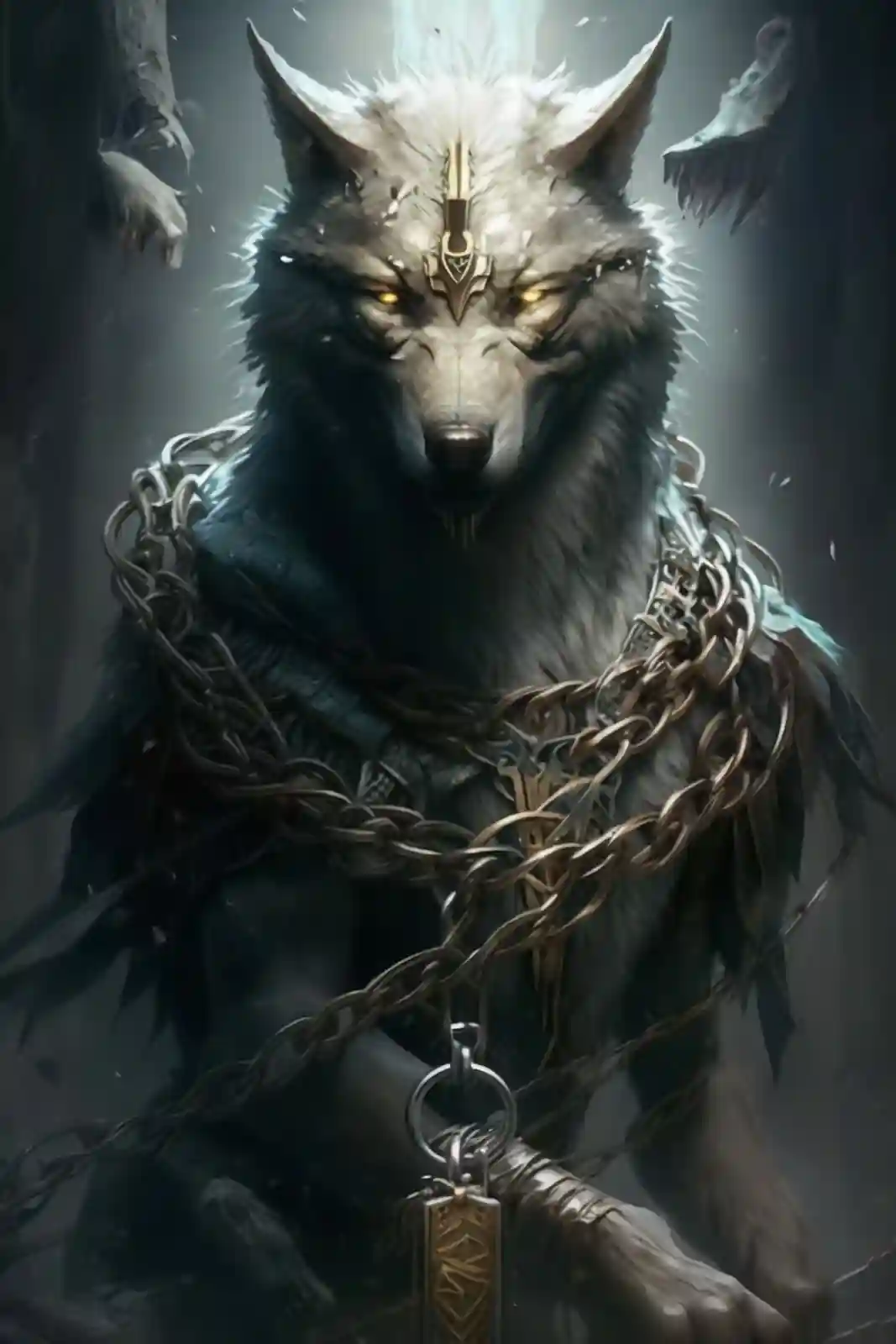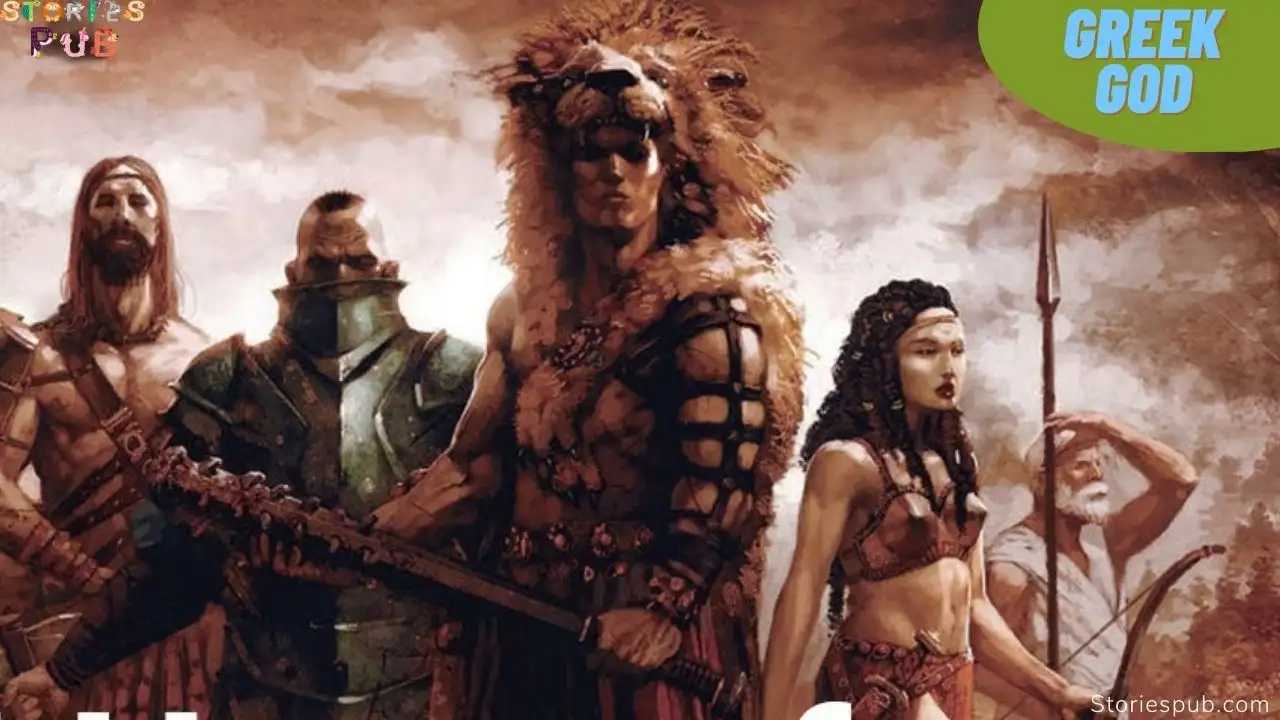Summarize this Article with:
Fuxi: The God of Creation and Knowledge in Chinese Mythology

A Brief Overview of Fuxi’s Importance in Chinese Mythology
Chinese mythology is filled with countless gods and goddesses, but few are as revered as Fuxi. Known as the first mythical emperor of China, his legacy has endured for thousands of years.
Fuxi is considered to be the founder of Chinese civilization, credited with inventing a writing system that became the foundation for the Chinese language. He is also known as a wise teacher who imparted knowledge to his people.
Fuxi’s importance can be seen in many aspects of Chinese culture, from art and literature to religion and philosophy. Even today, he remains an important figure for many Chinese people who see him as a symbol of wisdom and creativity.
Explanation of Fuxi as the God of Creation and Knowledge
Fuxi is often referred to as the god of creation and knowledge because he was believed to have created humanity and taught them important skills like hunting, fishing, agriculture, writing, and music. He was considered a wise teacher who imparted knowledge on his people so they could live better lives. According to legend, Fuxi emerged from a cosmic egg that split open after 18 years.
He was then raised by a dragon and phoenix before marrying Nuwa – another important figure in Chinese mythology. Fuxi also played an important role in developing the I Ching or Book of Changes – one of the oldest books in world literature that still holds great influence over modern society.
Overall, Fuxi represents wisdom and creativity – two traits that have always been valued highly by the Chinese people. He continues to inspire scholars around the world with his enduring legacy.
The Birth of Fuxi
From Cosmic Egg to Mortal Form
According to Chinese mythology, Fuxi was born from a cosmic egg. This egg was said to contain the essence of the universe, and from it emerged a divine being with a human form. The first thing Fuxi did upon emerging from the egg was to create all living things on Earth, including plants and animals.
Fuxi’s birth is surrounded by mystical elements that reflect his status as a god of creation. It is said that when he was born, divine beings appeared in the sky and sang praises to him.
It is also said that his body glowed with an otherworldly light and radiated heat like the sun. These details emphasize the sacredness of his origins and set him apart as a being of great power.
Raised by Dragon and Phoenix
After his birth, Fuxi was raised by two creatures who are themselves highly symbolic: a dragon and a phoenix. The dragon represents strength and power, while the phoenix represents grace and beauty. Together, they taught Fuxi everything he needed to know about ruling over creation.
The relationship between Fuxi and these mythical creatures is an important part of Chinese mythology because it symbolizes balance. By placing these three beings together – representing different aspects of nature – Chinese mythology emphasizes the importance of balance in all things.
Fuxi’s upbringing by these two powerful creatures ultimately prepared him for his future role as emperor over all living things on Earth. His knowledge of both strength (represented by the dragon) and beauty (represented by the phoenix) allowed him to rule with wisdom and grace.
Conclusion: A Divine Start in Life
The story of Fuxi’s birth highlights his divine status as a god of creation. From his emergence from the cosmic egg to his upbringing by a dragon and phoenix, everything about his early life emphasizes his strength, wisdom, and ability to rule over all living things. This divine start in life set the stage for his many accomplishments in later years – including inventing the Chinese writing system and developing the I Ching (Book of Changes).
The Divine Union: Fuxi’s Marriage to Nuwa
Overview of Nuwa, the goddess who created humans
Nuwa is a prominent figure in Chinese mythology, often regarded as the mother of mankind. According to legend, she created humans using clay and breathed life into them, making her a revered deity among the Chinese people.
Her creation story has been passed down through generations and continues to be an important aspect of Chinese culture. In addition to her role as creator of humans, Nuwa is also known for repairing the sky after a great flood that ravaged the earth.
She melted five-colored stones to patch up holes in the sky, which allowed sunlight and rainwater to reach the earth once again. This act solidified her status as a powerful goddess who holds great influence over nature.
Description of how Fuxi and Nuwa fell in love and married
It is said that Fuxi first saw Nuwa while she was bathing in a river. He was immediately captivated by her beauty and grace, and approached her to express his admiration. The two soon fell deeply in love and were married in a divine ceremony held by other gods.
Their union was believed to be blessed by heaven itself, as they were both powerful deities with immense knowledge and ability. Together they brought harmony to nature and taught humanity various skills such as hunting, fishing, agriculture, medicine, music, divination etc.
Fuxi’s relationship with Nuwa also led him towards his creations of Yi Jing or I Ching (Book of Changes) – one of China’s most important texts – which has been used for thousands years for divination purposes till date. Their marriage was celebrated throughout China as an example for all couples on how love can overcome any obstacle when based on mutual respect & admiration.
The Importance Of Their Union
Fuxi and Nuwa’s marriage set the stage for much of Chinese culture and mythology. They are seen as a divine couple whose love brought order and balance to the world, reflecting the idea that all aspects of life are interconnected. Their union also symbolizes the importance of male-female balance in nature, with Fuxi representing masculinity and knowledge while Nuwa represents femininity and creation.
This duality is emphasized in various Chinese art forms, including painting, pottery, and sculpture. Furthermore, their relationship serves as a reminder to cherish love and respect for one another.
Their example has been an inspiration for countless generations of Chinese people who strive to emulate their divine harmony in their own lives. Fuxi’s marriage to Nuwa is a celebrated union in Chinese mythology.
Together they represent the perfect balance of masculine and feminine energies, symbolizing love, respect & admiration between two individuals that can overcome any obstacle. Their story remains a significant part of Chinese culture today.
The Contributions of Fuxi to Chinese Culture
How Fuxi Invented the Chinese Writing System
Fuxi is believed to have invented the Chinese writing system, which is one of the oldest writing systems in the world. According to legend, Fuxi created the system by observing the patterns of cracks on turtle shells and animal bones. He then assigned different meanings to each of these patterns and used them as symbols for words.
The earliest examples of Chinese writing date back to the Shang Dynasty (1600-1046 BCE), which suggests that Fuxi’s invention was widely used during this time. The system underwent several changes over time, but it remains an important part of Chinese culture to this day.
Overview of his Role in Developing the I Ching, or Book of Changes
The I Ching, also known as Book of Changes, is a book that contains a collection of divination texts and philosophical ideas. It was developed by Fuxi and later expanded upon by Confucius, who saw it as a tool for ethical guidance.
The book consists of 64 hexagrams, each made up of six lines that are either solid or broken. Each hexagram represents a different concept or idea and can be interpreted in various ways depending on context.
Fuxi’s influence on the I Ching can be seen in its focus on balance and harmony between opposing forces. This idea is reflected in many aspects of Chinese culture, including medicine, martial arts, and philosophy.
The Influence of Fuxi’s Contributions Today
The contributions made by Fuxi continue to have a profound impact on Chinese culture today. The writing system he created is still used throughout China and other parts of Asia, while the I Ching remains an important tool for self-improvement and personal growth.
Fuxi’s teachings also influence many aspects of Chinese philosophy and religion, including Taoism and Confucianism. These schools of thought emphasize the importance of balance, harmony, and personal responsibility, all of which can be traced back to Fuxi’s contributions.
Furthermore, Fuxi serves as a symbol of wisdom and enlightenment in Chinese culture. His story is often used to inspire people to seek knowledge and understanding in their own lives.
The Legacy Left Behind by Fuxi
Fuxi’s legacy is one that continues to inspire people across generations. His contributions to Chinese culture are a testament to the importance of creativity, innovation, and perseverance in achieving success.
His story also reminds us that knowledge is power, and that we should always strive to learn more about ourselves and the world around us. By embracing these values, we can honor Fuxi’s memory while creating our own legacies for future generations.
Legends Surrounding Fuxi’s Death
Description of how Fuxi died peacefully at an old age
According to Chinese mythology, Fuxi lived a long and fulfilling life before passing away peacefully at an old age. His exact age at the time of his death is not known, but it is believed that he lived for several hundred years. Despite his advanced age, Fuxi remained active until his final days and continued to offer guidance and knowledge to those around him.
Fuxi’s passing was mourned by all who knew him, as he was renowned for his wisdom and contributions to Chinese culture. However, his legacy continued long after his death through the written works that he left behind.
Overview on different legends surrounding his death, including one where he transformed into a serpent
In addition to the peaceful passing described above, there are several other legends surrounding Fuxi’s death in Chinese mythology. One of the most popular legends tells of how Fuxi transformed into a serpent upon reaching the end of his life. According to this legend, Fuxi realized that it was time for him to pass on from this world and began to transform himself into a serpent.
As he did so, he imparted one final piece of wisdom to humanity: that they should be kind and compassionate towards all living creatures. Another legend tells of how Fuxi ascended into heaven upon his death.
It is said that as he approached the gates of heaven, he was greeted by various deities who recognized him as one of their own. They welcomed him with open arms and allowed him to join them in the afterlife.
Despite these various legends surrounding his death, one thing is clear: Fuxi left behind a lasting legacy that continues to inspire people around the world even today. Whether through tales of transformation or stories of ascension, his impact on Chinese culture and mythology will never be forgotten.
Why it is important for people to know about the story and legacy left behind by mythical emperor, Fu Xi
The story of Fuxi is more than just a fascinating mythological tale. It represents an important piece of Chinese history and culture that has been passed down through generations of people all over the world.
By understanding the story and legacy left behind by this mythical emperor, we can gain a deeper appreciation for the role that he played in shaping Chinese society as we know it today. Furthermore, there are many lessons that can be learned from Fuxi’s life and teachings.
His emphasis on compassion towards all living creatures is a message that still resonates with people in our modern world. Additionally, his contributions to the development of the Chinese writing system and I Ching demonstrate the importance of knowledge and education in shaping human civilization.
Overall, learning about Fuxi’s story can help us to better understand our shared human history and appreciate the diverse cultures that make up our world today. Whether through tales of transformation or stories of ascension, his impact on Chinese culture and mythology will never be forgotten.
Conclusion
The Legacy of Fuxi
The story of Fuxi, the first mythical emperor of China, is an ancient tale that has been passed down for centuries. His contributions to Chinese culture are immeasurable and serve as a testament to his importance in their mythology. As the god of creation and knowledge, he invented the Chinese writing system and played an instrumental role in developing the Book of Changes (I Ching).
Why it is Important to Know About Fuxi
Fuxi’s story is not only important for understanding Chinese mythology but also serves as a reminder of the enduring human desire to create and understand our world. His legacy has left a lasting impact on Chinese culture, influencing art, literature, and philosophy throughout history. In modern times, his story serves as a source of inspiration for those seeking knowledge and wisdom.
The Lessons We Can Learn from Fuxi’s Story
The story of Fuxi offers many valuable lessons that are still relevant today. One such lesson is the importance of creativity in shaping our world.
Through his inventiveness and ingenuity, Fuxi was able to create new systems that have stood the test of time. Additionally, his partnership with Nuwa symbolizes the power of love and cooperation in achieving great things.
Fostering Cross-Cultural Understanding
Learning about stories like that of Fuxi can also facilitate cross-cultural understanding between different communities around the world. By exploring different mythologies and cultural traditions, we can gain a greater appreciation for the diversity within our global society.
Overall, knowing about Fuxi’s life and legacy offers us an opportunity to reflect on our own lives and how we can contribute positively to our communities. As we strive towards furthering our own intellectual and creative pursuits, we can look to Fuxi as a symbol of what is possible when we put our minds and hearts into achieving greatness.
Hey kids, how much did you like Fuxi: The God of Creation and Knowledge in Chinese Mythology? Please share your view in the comment box. Also, please share this story with your friends on social media so they can also enjoy it, and for more such Chinese Mythology, please bookmark storiespub.com.
Related Post :












